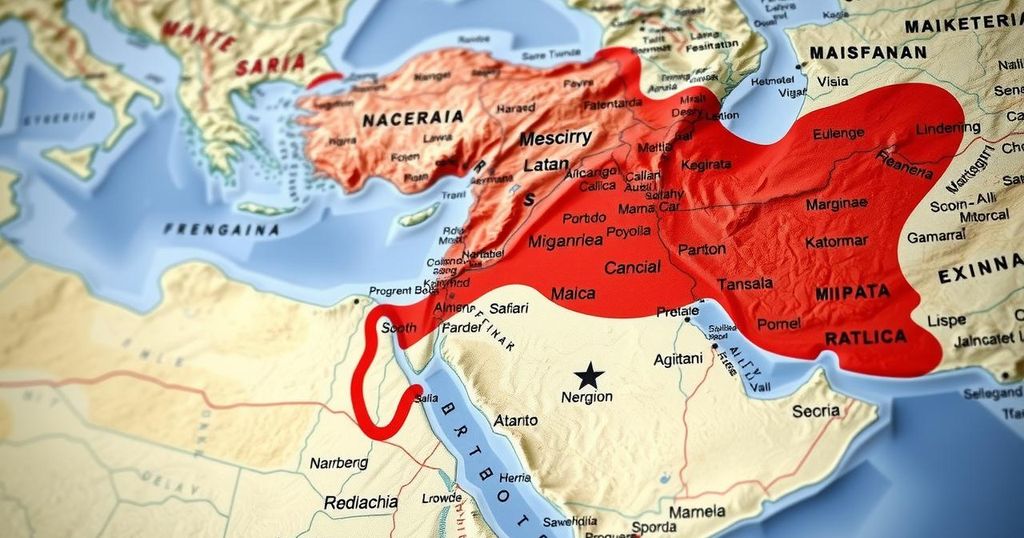Qatar and Jordan condemned an Israeli map claiming historical rights over parts of Palestine and neighboring Arab countries. The Qatari Foreign Ministry described the map as a violation of international law, warning it could hinder peace efforts. Jordan reaffirmed its support for Palestinian rights against such claims. Both nations called for international intervention to address Israel’s practices regarding occupied territories.
A recent publication by the Israeli government depicting a controversial map asserting historical claims over territories in Palestine, Jordan, Lebanon, and Syria has drawn harsh criticism from Qatar and Jordan. This contentious map was disseminated by the Israeli Foreign Ministry’s Arabic language social media account, which asserted that it represented the ancient boundaries of the Kingdoms of Israel and Judea, supposedly stretching far beyond the current borders. The Qatari Foreign Ministry condemned the map, stating that it violates international law and threatens regional peace, particularly in light of the ongoing conflict in Gaza. Similarly, Jordan’s Ministry of Foreign Affairs voiced strong disapproval, reaffirming the country’s commitment to Palestinian sovereignty and condemning any actions that undermine the rights of the Palestinian people. Both nations underscored the necessity for the international community to respond effectively to these provocative claims, which they believe further complicate the prospects for peace in an already turbulent region.
The ongoing Israeli-Palestinian conflict has resulted in a long-standing dispute over territory and sovereignty, particularly concerning the recognition and establishment of a Palestinian state. The recent publication of the map claiming historical rights over parts of Arab countries adds a new layer of tension and highlights the sensitivities surrounding the issue of historical narratives and territorial claims. This incident occurs amid heightened international scrutiny of Israeli policies regarding occupied territories, and it raises significant questions about international law, legitimacy, and the prospects for a peaceful resolution to the conflict.
In conclusion, the publication of the map by the Israeli government claiming historical territory has elicited strong rebukes from both Qatar and Jordan, reflecting broader fears regarding the erosion of Palestinian rights and the implications for regional stability. Both nations emphasize the importance of recognizing Palestinian sovereignty and urge the international community to act against perceived violations of international law. With the ongoing conflict in Gaza, these developments underscore the urgency for diplomatic efforts aimed at achieving lasting peace in the region.
Original Source: www.palestinechronicle.com






